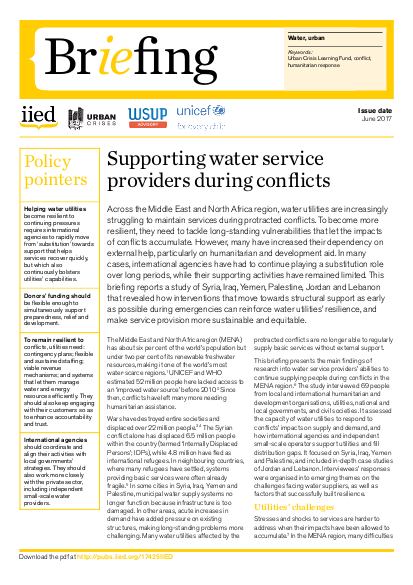
Across the Middle East and North Africa region, water utilities are increasingly struggling to maintain services during protracted conflicts. To become more resilient, they need to tackle long-standing vulnerabilities that let the impacts of conflicts accumulate. However, many have increased their dependency on external help, particularly on humanitarian and development aid. In many cases, international agencies have had to continue playing a substitution role over long periods, while their supporting activities have remained limited. This briefing reports a study of Syria, Iraq, Yemen, Palestine, Jordan and Lebanon that revealed how interventions that move towards structural support as early as possible during emergencies can reinforce water utilities’ resilience, and make service provision more sustainable and equitable.
Links
Resource collections
- Gaza humanitarian response
- UN Habitat - Urban Response Collection
- Urban Response - Urban Crisis Preparedness and Risk Reduction
- Urban Response Collection - Community Engagement and Social Cohesion
- Urban Response Collection - Economic Recovery
- Urban Response Collection - Environment and Climate Change
- Urban Response Collection - Housing, Land and Property
- Urban Response Collection - Urban Crisis Response, Recovery and Reconstruction
- Urban Response Collection - Urban Resilience